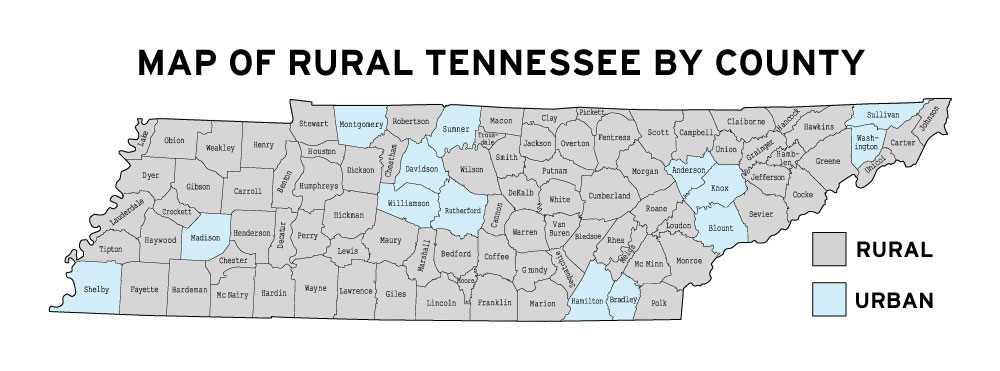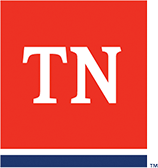Rural Arts Facilities Fund (RAFF) grants are designed to help rural communities carry out initiatives that build, renovate, or expand arts and cultural facilities. Project applications must demonstrate a history and/or commitment to arts and cultural programming in the community, cross-sector community support, feasible plans for revenue generation and facility management, and sustainable long-term operational goals. Public investment in rural arts and cultural facilities can help rural communities in a number of ways, including, but not limited to, expansion of arts and cultural opportunities for underserved audiences, job creation, tourism development, enhanced creative learning opportunities, as well as strengthening a community’s distinctive identity and quality of life.
The Tennessee Arts Commission is committed to advancing the arts as a driver of the creative economy and creative placemaking, as well as accelerating transformation of rural areas through the nonprofit arts and creative sector. The RAFF grant program builds upon work accomplished through the Creative Placemaking grant program and Tennessee Stages programs. Creative Placemaking grants provide funding for arts projects that enhance the distinctive local character of Tennessee places for positive economic and community outcomes. Many Creative Placemaking grants projects have helped renovate or enhance rural arts facilities.
With Tennessee Stages, the Commission created a searchable online database of performing arts stages across the state to help communities in all 95 counties increase capacity for providing arts experiences to their citizens. In addition to serving as a mapping tool and a block-booking resource for Tennessee’s performing arts industry, the project draws attention to the value and scope of these important assets, especially those in rural communities which may be underutilized.
Applicants may request up to $200,000 for projects that build, renovate, restore, preserve, or enhance rural arts facilities, including performing arts centers, art museums and galleries, multi-purpose arts centers, amphitheaters, and mobile stages. (Please note that applications targeting outdoor arts facilities must demonstrate that the proposed project will maintain or increase regular arts and cultural programming.)
RAFF grants do not require a dollar-for-dollar match; however, applicants are asked to show all project related expenses and income in their application budget.
Funding will depend upon an organization’s rating in the review process and upon the total amount of funds available to the Commission for grant allocation. This grant program is competitive, and most grant requests are not fully funded. In addition to merit ratings, the Commission seeks a diversity of project designs, locations and community settings across Tennessee for RAFF projects. Priority will be given to applications from organizations in distressed and at-risk counties.
If funded, all grantees must promptly notify the Commission in writing of any significant changes in the organization’s structure, leadership or financial circumstances that could affect services provided under the grant contract resulting from this application. See other Grantee Reporting Requirements.
An applicant is eligible to apply if the organization is located one of Tennessee’s Rural Counties and meets one of the following qualifications:
- The organization is an entity of local government
- The applicant is a nonprofit arts organization legally chartered in Tennessee and in possession of a determination letter from the Internal Revenue Service declaring the organization exempt from federal income tax under Section 501(c)3 of the Internal Revenue Code
Applicants may only submit proposals to build, renovate, or expand facilities that are owned by nonprofit organizations or local government entities. Proposals for facilities that are privately held or owned are ineligible.
NEW: Organizations that were awarded three consecutive Rural Arts Facilities Fund grants in FY24, FY25, and FY26 are not eligible to apply for the FY27 Rural Arts Facilities Fund grant.
Unique Entity ID (UEI): All applicants are required to have a Unique Entity ID. Information and application instructions can be found here.
Schools, colleges, and universities are ineligible to apply.
RAFF utilizes a combined rural designation defined by the Governor’s Rural Task Force as well as the designation for rural used by the Commission’s Rural Arts Project Support and Small Rural Partnership Support grant programs. See map below.

Applicants must possess one of the following:
- the deed to the land and/or facility for which RAFF grant funding is being requested
- a long-term lease that stipulates that the property must be operated as an arts facility
- Documentation that the facility is subject to a legally binding local resolution, ordinance, memorandum of understanding, or contract stipulating the facility’s operation as an arts and cultural facility
- documented history of community arts and cultural programming at the project site
Debarment and Suspension. Grantees are required to sign contracts certifying to the best of its knowledge and belief, that it, its current and future principals, its current and future subcontractors and their principals are not presently debarred, suspended, proposed for debarment, declared ineligible, or voluntarily excluded from covered transactions by any federal or state department or agency.
Examples of eligible projects or activities may include but are not limited to:
- Architectural or design plans for new buildings, expansions, or adaptive re-use of existing facilities
- Cultural facilities improvements, including essential technology updates, equipment purchases, and infrastructure upgrades for presenting, producing, exhibiting, and/or preserving arts and cultural assets
- Stage renovation or enhancement (improvements to sound, lighting, seating, stage curtains, green rooms)
- Capital improvements that increase accessibility to arts programming for persons with disabilities and comply with the Americans with Disabilities Act
If an applicant is carrying out a large capital project that will not be finished in its entirety by June 15, 2027, the applicant may apply for support for a single component or phase of that project.
- Salaries and benefits
- Operating support for arts organizations or ongoing arts programming
- Marketing and promotional materials
- Purchase of land or a facility
- Facility rental
- Equipment or materials purchases that do not directly impact presentation, production, exhibition, and/or preservation of arts and cultural assets
- Carrying out regular facility maintenance
- Paving a parking lot or other exterior projects unrelated to arts programming
Standard Commission funding restrictions. However, costs for equipment, if integral to the project, are allowable for the CP and RAFF grant categories only.
Arts organizations that receive revenue directly from a “New Specialty Earmarked Plate” under T.C.A 55-4-301 (a)(1) are ineligible for Commission grant funding.
For further eligibility information, please refer to the Commission’s Legal Requirements.
PLEASE NOTE: An organization should not apply in this grant category if it is aware at the time of application they cannot meet all of the above stated requirements.
The Tennessee Arts Commission reserves the right to deny any application, if the proposed activity is outside of the scope or spirit of the agency’s mission, purpose, or this grant program.
Evaluators reviewing grant applications under this program use the following evaluation criteria:
- Demonstrable history and/or commitment to arts and cultural programming in the community (10 points)
- Cross-sector community support and involvement in project (15 points)
- Ability of project to contribute to applicant’s long-term financial sustainability (15 points)
- Strength of the professional or local team involved with the project (15 points)
- Articulation of clear, measurable project goals, outcomes, and methods to achieve them (20 points)
- Extent to which project will broaden, deepen, and vary the availability to arts and cultural programming to rural communities (15 points)
- Degree of stability of applicant organization (10 points)
- For applications from organizations in distressed and at-risk counties, applications will receive 5 additional points. A list of Tennessee’s distressed and at-risk counties is available under the Targeted Arts Development Initiative.
- Architectural drawings, blueprints, renderings, diagrams, and/or photographs of the targeted property
- Resume(s) of key project staff or consultants
- Deed, long-term lease, OR documentation that demonstrates that the facility or property will be operated as an arts and cultural facility
- Letters of support or evidence of community support. Combine all letters into one document.
- List of Board of Directors. Only nonprofit organizations with 501(c)3 status must upload this document. The board list (at the time of application) must include the following:
-
- Full Name
- Email address
- Number of years on the board
- Length of term(s)
- NEW: Identify Executive board members (i.e., President, Vice President, Secretary and Treasurer)
NOTE: Double check your board list to make sure it has all 5 pieces of the required information. If your organization’s bylaws do not require term limits, include a statement on the Board List indicating this. Legal requirements state that Commission funds granted to an organization may not be used as a payment of any kind, for any purpose, to members of an organization’s board.
- Corporation Annual Report. Only nonprofit organizations with 501(c)3 status will be prompted to upload this document (as required to be filed annually with the Secretary of State’s Office). In lieu of the report, you may also submit a copy of the email verification issued by the Secretary of State’s office or a copy of the online verification sheet maintained by the Secretary of State’s Office found here. Entities of government do NOT submit.
To Upload Documents:
• Select “Edit” at the top of the application and scroll down to “Required Documents.”
• Select the “blue plus circle” button near to the right for the type of document and upload the required document saved on your computer.
• Before exiting the “organization” profile, hit “Save” at the bottom right hand corner.
You will NOT be prompted to upload these documents in the system, but these documents may be required based on your applicant type.
Accepted file types include .pdf, .jpg or .png. For video and audio samples, provide links to projects in the section labeled “Optional Material Link(s)” below the “Documents” section.
Recent Bylaws. All Nonprofit, 501(c)3 applicants must upload the most recent copy of their bylaws to their online organization profile during registration, prior to submitting their application.
- Register to use the Online Grants System as an individual or on behalf of an organization to receive a username and password. Individuals who represent organizations should get their own, individual accounts and not share or “pass down” the username or password among staff. You are strongly advised to register well in advance to the application deadline. Anyone registering close to the deadline date can expect delays in the processing of their grant application.
- Log into the Online Grants System to complete your “Organization” profile and begin an application for a Creative Placemaking: Rural Arts Facilities Fund grant.
- Use the “Organizations” tab on the left-hand menu to ensure that the profile is complete and accurate. This information is as important as the application itself. Incomplete or erroneous data will impact your chances for funding. To edit the profile, click the “Edit” button at the top of the Organization screen.
- Use the “People” tab on the left-hand menu to ensure that your “People” profile is complete and accurate. This information will also be used in the review of the application. To edit the profile, click the “Edit” button at the top of the screen.
- When both your “Organization” and “People” profiles are complete and accurate, select the “Apply for Grants” tab, scroll down and select “Apply for Annual Grant”, when the application opens choose Rural Arts Facilities Fund for the grant category.
- Complete all of the application fields.
- Create and upload required attachments.
- Submit by Tuesday, January 20, 2026, by 11:59 p.m. (CST).
NOTE: The forms in this portal do not auto-save. Always click the “Save” button before navigating away from the form you are editing to save your work.
Beware—clicking the back navigation button on your web browser will exit you from the system and you will lose your work.
Association or Connection to Multiple Organizations: If you are associated with more than one organization, the organization that you were originally associated with will prepopulate in the organization name field on any newly opened application. To change to another associated organization, simply delete the prepopulated name and type in the correct organization.
All Commission sponsored programs, services and facilities are fully accessible to all Tennessee artists and citizens. No person of on the grounds of disability, age, race, color, religion, sex, national origin or any other classification protected by Federal, Tennessee State constitutional, or statutory law shall be given preferential treatment or excluded from participation in services, programs and employment provided by the Commission and its contracting agencies. If an individual believes they have been subjected to discrimination, they may file a complaint with the Civil Rights Enforcement Division of the Tennessee Attorney General’s Office at Online Complaint Portal; phone: 615.741.5825, email CRED@ag.tn.gov; or by mail to P. O. Box 20207, Nashville, TN 37202.
All Commission sponsored programs, services and facilities should be fully accessible and compliant with American with Disabilities Act (ADA). The Americans with Disabilities Act (ADA) prohibits discrimination against individuals with disabilities in employment, state and local government services, public accommodations, transportation, and telecommunication. The ADA extends the requirements under Section 504 of the Rehabilitation Act of 1973, as amended, to all activities of state and local governments and places of public accommodations operated by private entities, including places of public display. Resources to assist in meeting these requirements can be found on the Tennessee Arts Commission’s Accessibility Resources page.
Applicants are encouraged to contact Shannon Ford, 615-532-9796, or Jared Morrison, 615-532-9801 to discuss the project and to verify eligibility prior to applying for funding.

